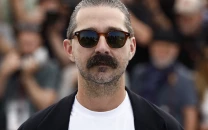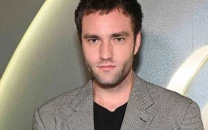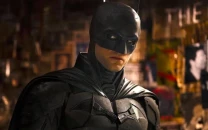9/11 memes dominate social media: A new generation's dark humor reshapes tragedy
Student says, “Being terminally online is wild someone mentioned 9/11 and I forgot not everyone finds it funny now.”
1725965130-0/Untitled-design-(1)1725965130-0-640x480.webp)
In an era where historical events transform into memes, the tragedy of September 11, 2001, has found a distinct place in the digital age, especially among Generation Z.
A recent surge in 9/11 memes reflects a complex interaction with the event that many from this generation did not personally experience.
As these young adults navigate their understanding through humor and online culture, the ways they connect with 9/11 show a significant shift from the profound solemnity that once surrounded the day.
For Olivia, a 21-year-old college student from Minnesota, the mention of 9/11 in her class highlighted a generational disconnect.
She noted, "Being terminally online is wild [because] someone mentioned 9/11 in my class today and I genuinely forgot that not everyone thinks it’s funny now."
This sentiment underlines a broader trend where tragic events gradually morph into subjects of dark humor, particularly among those who learn about these events secondhand.
Social media platforms have catalyzed this shift, allowing memes and jokes about 9/11 to proliferate.
Platforms like X (formerly Twitter) and TikTok serve as major venues for these expressions, where users often post content that pushes the boundaries of traditional sensitivities.
For instance, memes making light of the attacks or comparing trivial personal setbacks to the tragedy reflect a form of coping or commentary that resonates with a younger audience.
Experts like George Bonanno, a professor of clinical psychology, suggest that most people recover from the shock of traumatic events quicker than anticipated, which may explain the increasing prevalence of humor surrounding 9/11.
The "benign violation theory" proposed by researchers Peter McGraw and Caleb Warren further supports this, suggesting that humor about controversial events becomes more acceptable as the immediacy of the trauma fades.
Yet, the transformation of 9/11 into meme material is not without controversy. Some view these jokes as a necessary evolution of coping mechanisms, while others see a risk of trivializing the gravity of the attacks.
Ruby Karp, a 24-year-old comedian, encapsulates this duality, acknowledging the tragedy but also recognizing a generational gap in emotional connection to the events of 9/11.
As the internet continues to reshape how historical events are remembered and discussed, the role of memes in this process remains a poignant topic.
The debate over the appropriateness and impact of 9/11 jokes likely will persist as future generations redefine the boundaries of humor and historical respect.






-(1)1718534695-0/house-of-dragon-(1)-(1)1718534695-0-208x130.webp)












COMMENTS
Comments are moderated and generally will be posted if they are on-topic and not abusive.
For more information, please see our Comments FAQ